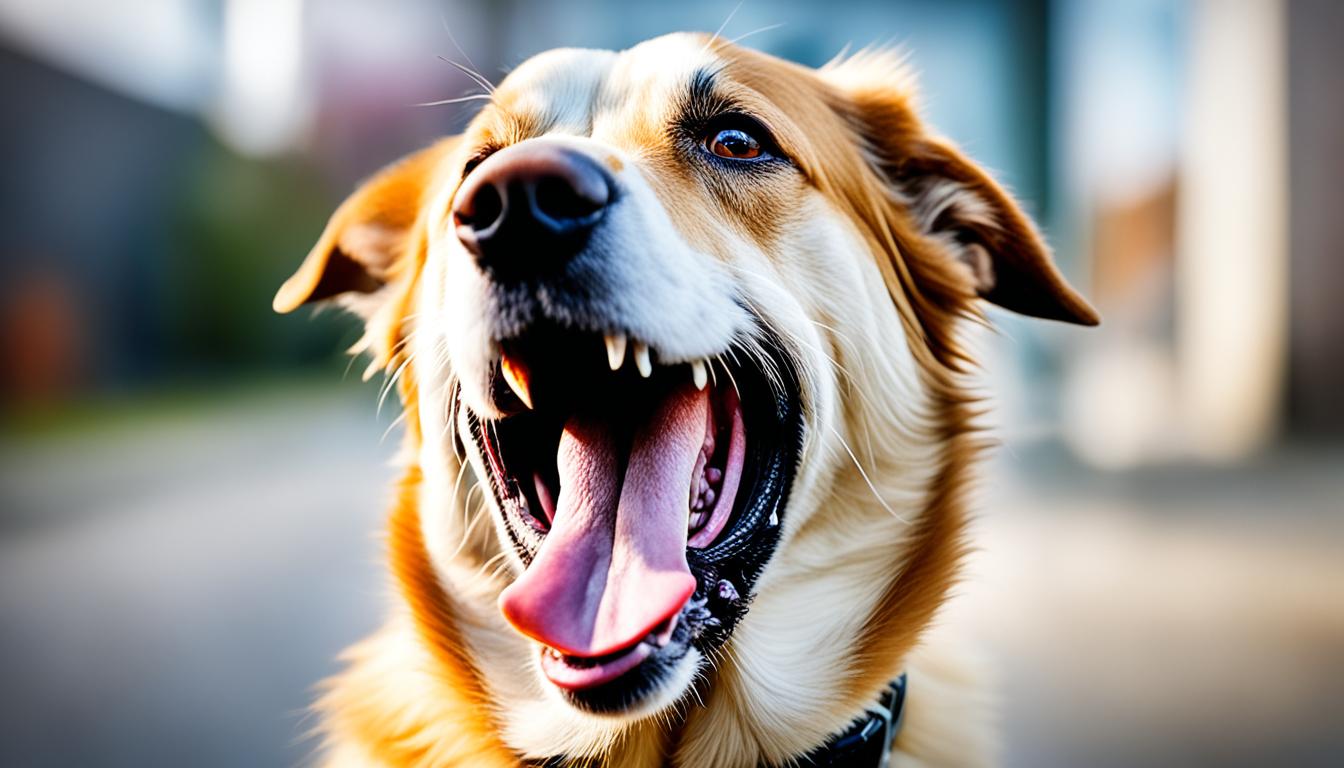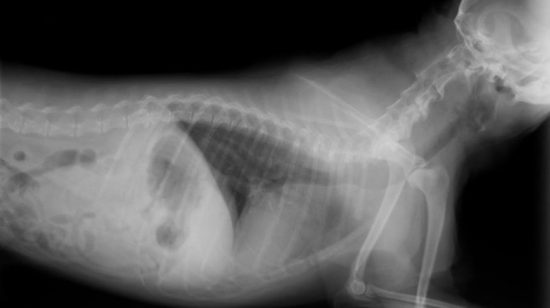Why Does My Dog Wheeze? Causes and Remedies for Wheezing
Understanding why your dog wheezes is vital for their health. Explore causes and find effective remedies for your canine’s wheezing concerns.

Did you know that wheezing in dogs can be caused by various factors, including inflammation, allergies, infections, heart disease, and even foreign objects?
When you hear your dog making that high-pitched, raspy sound, it’s a sign that there is turbulent air flow through their trachea or windpipe. Wheezing is not something to be taken lightly, as it can indicate underlying health issues that require attention. In this blog, we will delve into the common causes of dog wheezing and explore effective remedies to alleviate the symptoms and promote your dog’s respiratory health.
Determining the Cause Behind Your Dog’s Wheezing
When your dog is wheezing, it’s important to determine the underlying cause in order to provide the appropriate treatment and ensure your furry friend’s respiratory health. Wheezing in dogs can be triggered by a variety of factors, including allergies, infections, and heart disease. By understanding the potential triggers, you can work with your veterinarian to uncover the culprit behind your dog’s wheezing.
Wheezing in dogs is a high-pitched, raspy sound that occurs when there is turbulent airflow through the trachea or windpipe. It can be a symptom of various health conditions and should never be ignored. Allergies, infections, heart disease, and foreign objects lodged in the airway are common triggers for wheezing in dogs. Identifying the specific trigger is crucial for effective treatment and management of your dog’s wheezing symptoms.
Professional Diagnosis: How Veterinarians Uncover the Culprit
If your dog is wheezing, it’s important to seek professional veterinary care for a comprehensive diagnosis. Veterinarians will conduct a thorough physical examination to assess your dog’s overall health and evaluate potential underlying causes of the wheezing. In some cases, additional diagnostic tests such as chest X-rays and bloodwork may be recommended to further investigate the condition. These tests play a significant role in identifying the specific condition causing the wheezing symptoms, allowing for a targeted treatment approach.
The Significant Role of Chest X-rays and Bloodwork in Diagnosing Wheezing

Chest X-rays are a valuable diagnostic tool when it comes to evaluating the respiratory system and identifying potential abnormalities or disorders. They can help detect conditions such as pneumonia, lung tumors, or tracheal collapse that may be contributing to your dog’s wheezing. In addition to chest X-rays, bloodwork may also be conducted to assess your dog’s overall health, identify any underlying infections or inflammation, and rule out systemic conditions. The combination of chest X-rays and bloodwork provides a comprehensive view of your dog’s health and aids in determining the most effective treatment plan.
| Chest X-rays and Bloodwork for Diagnosing Wheezing |
|---|
| Identifies potential abnormalities in the respiratory system |
| Helps detect conditions such as pneumonia, lung tumors, or tracheal collapse |
| Evaluates overall health and rules out systemic conditions |
| Aids in determining the most effective treatment plan |
Why Does My Dog Wheeze?

When your dog wheezes, it can be a cause for concern. Wheezing in dogs is often a symptom of underlying health concerns that should not be ignored. By understanding the common causes, you can take the necessary steps to address these issues and promote your dog’s respiratory health.
Some common health concerns associated with dog wheezing include:
- Infections such as kennel cough or pneumonia can lead to wheezing as the airways become inflamed.
- Dogs can develop allergies to various substances, including pollen, dust mites, or certain foods, which can trigger wheezing.
- Certain heart conditions can affect the proper flow of blood and oxygen, leading to wheezing.
- Collapsing trachea is a condition where the trachea partially collapses, making it more difficult for your dog to breathe and resulting in wheezing.
- If your dog ingests or inhales a foreign object, it can cause a blockage in the airway and result in wheezing.
It is important to be aware of these potential health concerns for dog wheezing and seek appropriate veterinary care when necessary. By understanding the underlying cause of your dog’s wheezing, you can work with your veterinarian to develop a tailored treatment plan to alleviate symptoms and support your dog’s respiratory health.
Note:
When your dog wheezes, it is always recommended to consult with a veterinarian for an accurate diagnosis and appropriate treatment. This article provides general information and should not substitute professional veterinary advice.
| Common Health Concerns for Dog Wheezing | Dog Wheezing Causes | Respiratory Issues in Dogs |
|---|---|---|
| Respiratory infections | Allergies | Heart disease |
| Collapsing trachea | Foreign body obstruction |
When to Seek Veterinary Care for Dog Wheezing
Wheezing in dogs should not be ignored, as it can indicate serious health issues. As a responsible pet owner, it is crucial to know when to seek veterinary care for your dog’s wheezing symptoms. Identifying emergent wheezing symptoms is the first step in determining the urgency of the situation.
Identifying Emergent Wheezing Symptoms
Some wheezing symptoms may require immediate medical attention. If you notice your dog gasping for breath, experiencing blue gums or tongue, or exhibiting constant gagging, it is essential to seek immediate veterinary care. These emergent symptoms suggest respiratory distress and should not be ignored. Your veterinarian will be able to diagnose the underlying cause and recommend appropriate treatment to alleviate your dog’s discomfort.
The Importance of Prompt Treatment for Potential Anaphylactic Reactions
In some cases, wheezing in dogs can be a sign of an anaphylactic reaction, which is a severe and potentially life-threatening allergic response. Your prompt action is crucial to ensure your dog receives immediate treatment to prevent further complications. If you suspect your dog is experiencing an anaphylactic reaction, such as difficulty breathing, swelling, or collapse, seek emergency veterinary care without delay. Timely treatment can be life-saving in these situations.
Knowing when to seek veterinary care for your dog’s wheezing symptoms is essential for their overall well-being. By identifying emergent wheezing symptoms, understanding the link between wheezing and respiratory distress, and recognizing the importance of prompt treatment for potential anaphylactic reactions, you can provide the necessary support and medical intervention to ensure your dog’s respiratory health.
From Bronchodilators to Lifestyle Changes: Treating Dog Wheezing
Treating dog wheezing involves various approaches depending on the underlying cause. Medical treatments may include bronchodilators, steroids, antihistamines, and antibiotics, depending on the specific condition. Additionally, lifestyle changes can play a significant role in managing wheezing symptoms in dogs, such as avoiding triggers, improving air quality, and maintaining a healthy weight. Working closely with your veterinarian will help create a comprehensive treatment plan tailored to your dog’s needs.
When it comes to treating dog wheezing, a combination of medical interventions and lifestyle adjustments is often necessary. For dogs with respiratory conditions, bronchodilators are commonly prescribed to alleviate wheezing and improve breathing. These medications work by relaxing the muscles of the airways, allowing for easier airflow.
Steroids can also be used in the treatment of dog wheezing, particularly if there is an inflammatory response causing the wheezing symptoms. Steroids help reduce inflammation in the airways, thereby relieving wheezing and promoting improved respiratory function. In cases where wheezing is triggered by allergies, antihistamines may be prescribed to reduce the body’s allergic response. These medications can help alleviate wheezing and other associated symptoms, such as itching and sneezing.
If a bacterial or fungal infection is involved in the wheezing episodes, antibiotics may be necessary to target and eliminate the pathogens responsible for the respiratory distress. Aside from medication, lifestyle changes can greatly contribute to managing dog wheezing. By identifying and avoiding triggers that trigger wheezing episodes, such as environmental allergens or smoke, you can help reduce the frequency and severity of the symptoms.
Improving air quality in your dog’s environment is another important step in treating wheezing. Consider using air purifiers or keeping your pet in well-ventilated areas to minimize exposure to irritants. Furthermore, maintaining a healthy weight is crucial for dogs prone to wheezing. Excess weight can put pressure on the airways, leading to breathing difficulties. Ensure your dog’s diet is balanced and appropriate for their breed and size, and engage them in regular exercise to promote a healthy weight.
Preventive Measures and How to Support a Dog Prone to Wheezing
In addition to addressing the underlying causes of wheezing in dogs, implementing preventive measures is crucial in supporting your furry friend’s respiratory health. Vaccinations play a vital role in protecting dogs against respiratory infections. By ensuring your dog is up to date on their vaccinations, you can help prevent potential illnesses that may contribute to wheezing.
Maintaining a clean and allergen-free environment is essential for dogs prone to wheezing. Regularly cleaning your home, removing dust, and avoiding exposure to common allergens like pollen or mold can significantly reduce respiratory distress in your furry companion.
Avoiding exposure to harmful substances such as tobacco smoke or chemical fumes is also crucial. These substances can irritate your dog’s respiratory system and potentially worsen wheezing symptoms. Taking your dog for regular exercise, according to their specific needs and capabilities, can promote overall respiratory health and improve lung function.
Diet and weight management play a significant role in supporting your dog’s respiratory health. Providing proper nutrition and maintaining a healthy weight can help reduce the strain on their respiratory system. Regular monitoring for any signs of wheezing or respiratory distress is important in catching potential issues early. By working closely with your veterinarian, you can implement these preventive measures and ensure your dog’s overall well-being and respiratory health
FAQs on Why Does My Dog Wheeze
Should I be worried if my dog is wheezing?
Wheezing in dogs can be a symptom of various health concerns. It is important to be aware of the potential underlying causes and seek appropriate veterinary care when your dog wheezes. Understanding the severity of the symptoms and recognizing emergent wheezing symptoms requiring immediate medical attention is crucial.
How do you fix a wheezing dog?
The treatment for a wheezing dog depends on the underlying cause. Medical treatments may include bronchodilators, steroids, antihistamines, and antibiotics, among others. Lifestyle changes, such as avoiding triggers and improving air quality, can also play a significant role in managing wheezing symptoms. Working closely with your veterinarian will help create a tailored treatment plan for your dog.
Why is my dog huffing like he can’t breathe?
Huffing or wheezing in dogs can be caused by various factors, including inflammation, allergies, infections, heart disease, and more. It is important to have your dog evaluated by a veterinarian to determine the underlying cause and provide appropriate treatment. Prompt medical attention is especially important if your dog shows signs of respiratory distress.
What does it mean when a dog makes a weird breathing noise?
A weird breathing noise in dogs, such as wheezing, can indicate an underlying health issue. It is essential to consult with a veterinarian to diagnose the specific condition causing the abnormal breathing noise. Identifying the cause will help determine the appropriate treatment to alleviate the symptoms and promote your dog’s respiratory health.
Why does my dog whistle when he breathes?
Whistling noises during breathing in dogs can be caused by various factors, such as narrowed airways, respiratory infections, allergies, or foreign objects in the airway. It is important to have your dog evaluated by a veterinarian to determine the underlying cause and provide appropriate treatment.
What does dog wheezing sound like?
Dog wheezing typically sounds like a high-pitched, raspy noise made by turbulent air flow through the trachea or windpipe. It can vary in intensity and duration depending on the underlying cause and the individual dog. If you notice any abnormal or concerning breathing sounds, it is important to consult with a veterinarian for a proper evaluation





